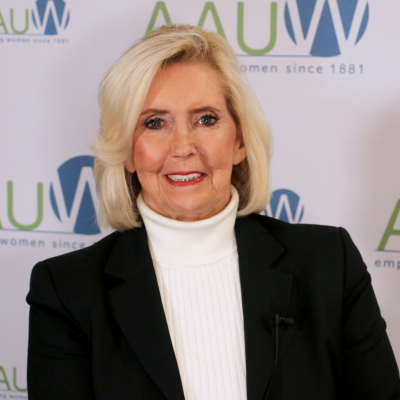Q&A With Lilly Ledbetter
Quick Insight
Pay equity affects you for the rest of your life. Women are outliving their spouses by an average of 10 years. And many can’t remain independent simply because they did not get their rightful retirement and pay.

As one of the first women hired as a manager at the Goodyear Tire and Rubber Company in 1979, Lilly Ledbetter showed leadership potential from the start. When she found out after many years on the job that she was earning substantially less than her male colleagues, she challenged her employer in federal court.
She initially won, but then the Supreme Court overturned decades of prior law and said that too much time had passed since the initial instance of pay discrimination, even though Goodyear kept the information hidden for almost two decades and Ledbetter sued as soon as she learned about it.
Yet all was not lost. Thanks in part to her advocacy, President Obama signed The Lilly Ledbetter Fair Pay Act of 2009, which allows people to fight ongoing discrimination regardless of when it began. Today, Ledbetter is still fighting — this time for the passage of the Paycheck Fairness Act, which would give workers new tools for ensuring that employers pay women and men equally for equal work. We asked her to share her story and her wisdom.
How did you find out you weren’t being adequately compensated?
After working for 19 years as a manager for Goodyear, I learned through an anonymous note that I was being paid about 40% less than my male counterparts. If that hadn’t happened, I would never have known because I worked for a corporation that prohibited employees from talking about their pay.
When I saw how much less I had been compensated, I was devastated. I thought about all those overtime hours, all that money, and all the things my family had done without — not to mention the impact on my 401K and future Social Security. I was two years from retirement.
What did you do after that?
I wasn’t in a position to quit. I still had a mortgage, college tuition and bills. But I couldn’t let it go, so I filed a charge with the Equal Employment Opportunity Commission. They referred my case to the lawyer of a firm that took it on a contingency basis.
The process started in 1998, and the federal trial was in 2003. After a week of testimony, the verdict came back: We were awarded $3.8 million. But of course Goodyear appealed, and we ended up in the Supreme Court.
In May 2007, the verdict came out five to four against me on a technicality. They didn’t even address the merits of the discrimination against me. As disappointed as I was, I was encouraged by Justice Ruth Bader Ginsburg’s dissent. Her point was that people don’t stand around the water cooler at work discussing their pay. And even if someone were to find out they were earning a little less, it’s difficult to know whether that’s due to discrimination. Ginsburg challenged Congress to correct the injustice of the Supreme Court’s verdict.
Where did you find the strength to keep fighting?
My family supported me and so did a lot of people across the nation. When the ball bounced to Congress, I went with it – and so did AAUW. It was unbelievable to see the marches, the letters, the emails and the outcry. We all worked to get the Ledbetter bill passed. It was sponsored and co-sponsored by Republicans and Democrats, and it became law in 18 months. We couldn’t let the Supreme Court’s verdict stand because that would have meant that people would have only the first six months or so of their employment to file a charge of pay discrimination. At that stage, most people are still learning their responsibilities. How would they know whether they were being paid less?
What would it have meant to you if the Paycheck Fairness Act had been the law during your career?
It would have allowed me to ask my co-workers on a break or on my personal time how they were paid without losing my job. And the law would have prevented me from getting fired for discussing salary information.
In the 10 years since the Lilly Ledbetter Fair Pay Act became law, we have not gained nearly enough ground. We’ve got to keep this momentum going. We must get the Paycheck Fairness Act passed. It’s not about being a Democrat or Republican or Independent. This belongs to everybody.
Why is it important for women to advocate for their own economic security?
Pay equity affects you for the rest of your life. Women are outliving their spouses by an average of 10 years. And many can’t remain independent simply because they did not get their rightful retirement and pay. This is a hardship in this country. It’s devastating to the American family, the community, the states and the nation. The gender pay gap is everybody’s issue.
What advice would you give the next generation?
Young women must, in the very beginning of their careers, make sure they negotiate. Because if you start out making less than men, you can’t easily catch up.
Be sure to research salaries for your prospective employer and industry. Take AAUW’s negotiating skills course to help negotiate your rightful pay. Because if you don’t, if you miss it, even a little bit, you can never get it back.
Why Paycheck Fairness Matters
Lilly Ledbetter explains why the law that bears her name is necessary but not sufficient for achieving gender pay equity.
Related
The Simple Truth About the Gender Pay Gap

The proposed law would eliminate loopholes in the Equal Pay Act of 1963 and represent a significant step toward finally closing the pay gap once and for all.

